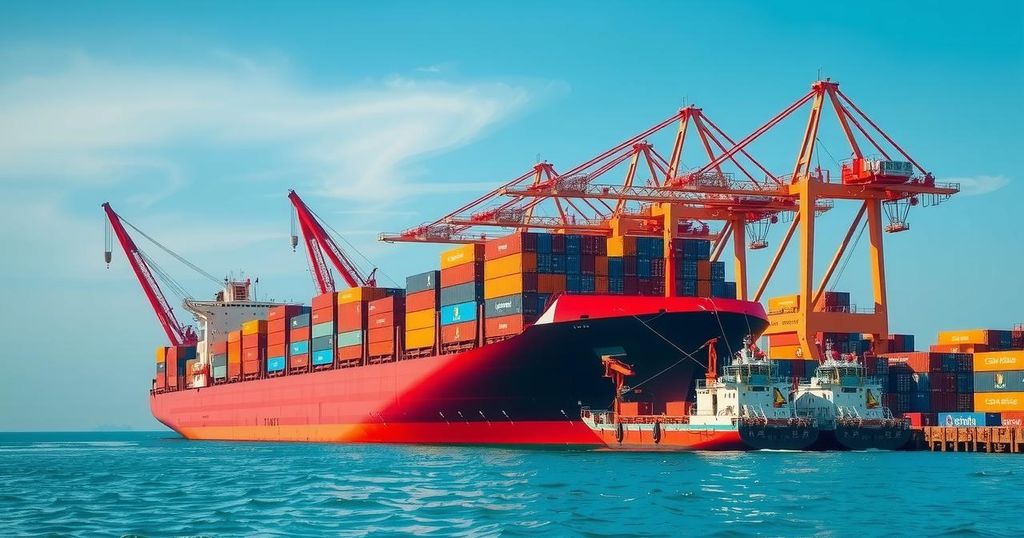Marsa Maroc, Morocco’s leading port operator, is expanding its African logistics presence by establishing three new subsidiaries, including Marsa Djibouti and Marsa Benin. The initiative involves capital investments aimed at enhancing international logistics operations and accessing key markets in East and West Africa. This expansion reiterates the company’s strong financial performance and commitment to diversifying through local partnerships.
Marsa Maroc, Morocco’s top port operator, is poised to enhance its logistics presence in Africa by launching three new international subsidiaries, as confirmed by a recent government announcement in the Official Gazette. This strategic expansion is anchored by the formation of Marsa Maroc International Logistics, with an initial capital of MAD 300 million ($30 million) dedicated to managing international investment initiatives.
The new parent company will oversee two specialized subsidiaries: Marsa Djibouti and Marsa Benin. Marsa Djibouti aims to acquire a stake in the Damerjog Oil Jetty FZE, which is tasked with developing a petroleum terminal in Djibouti’s free zone. This strategic acquisition is designed to capture significant logistics flows related to petroleum storage and reloading, specifically targeting both the Ethiopian and Djiboutian markets.
In parallel, Marsa Benin will be responsible for managing terminals 1 and 5 at the Port of Cotonou, under a management agreement with Benin Manutentions SA. This advantageous positioning on the Atlantic coast will grant Marsa Maroc access to vital West African markets, including Nigeria, Niger, and Burkina Faso.
This expansion is a continuation of Marsa Maroc’s solid domestic operations, which currently encompass 25 terminals across 11 ports in Morocco, including the strategically important Tanger Med 1 and Casablanca. Furthermore, the company is expected to bolster its operations with a new agreement to manage a container terminal at the Nador West Med port, achieving a capacity of over three million twenty-foot equivalent units set to commence in mid-2026.
Marsa Maroc’s financial stability is underscored by its impressive performance, recording profits of MAD 852 million ($85.2 million) last year, a 5% annual growth. Recently, the company secured MAD 690 million ($69 million) from the European Bank for Reconstruction and Development to augment its terminal capacity, illustrating its robust growth strategy. As a port operator that is 25% state-owned and has Tanger Med Port as a 35% stakeholder, Marsa Maroc is committed to further expanding its reach across the African continent.
The establishment of the new subsidiaries, each with a capital of MAD 300,000 ($30,000), signifies a decisive advancement in Marsa Maroc’s continental growth strategy. According to Les Inspirations Éco, “From a strategic perspective, the creation of these subsidiaries aligns with Marsa Maroc’s roadmap to become a key player in port infrastructure management and logistics services across the African continent.”
This strategy not only focuses on diversifying the companies’ portfolio but also underscores the importance of collaboration with local partners. As Marsa Maroc develops its presence in African logistics, the company is actively seeking further growth opportunities through public-private partnerships for managing ports in other African nations.
In summary, Marsa Maroc is strategically expanding its footprint across Africa by establishing new subsidiaries, strengthening its logistics capabilities and market access. This growth is supported by a solid financial foundation and a commitment to collaborate with local partners, positioning the company as a prominent player in port infrastructure management and logistics services throughout the continent.
Original Source: www.moroccoworldnews.com






